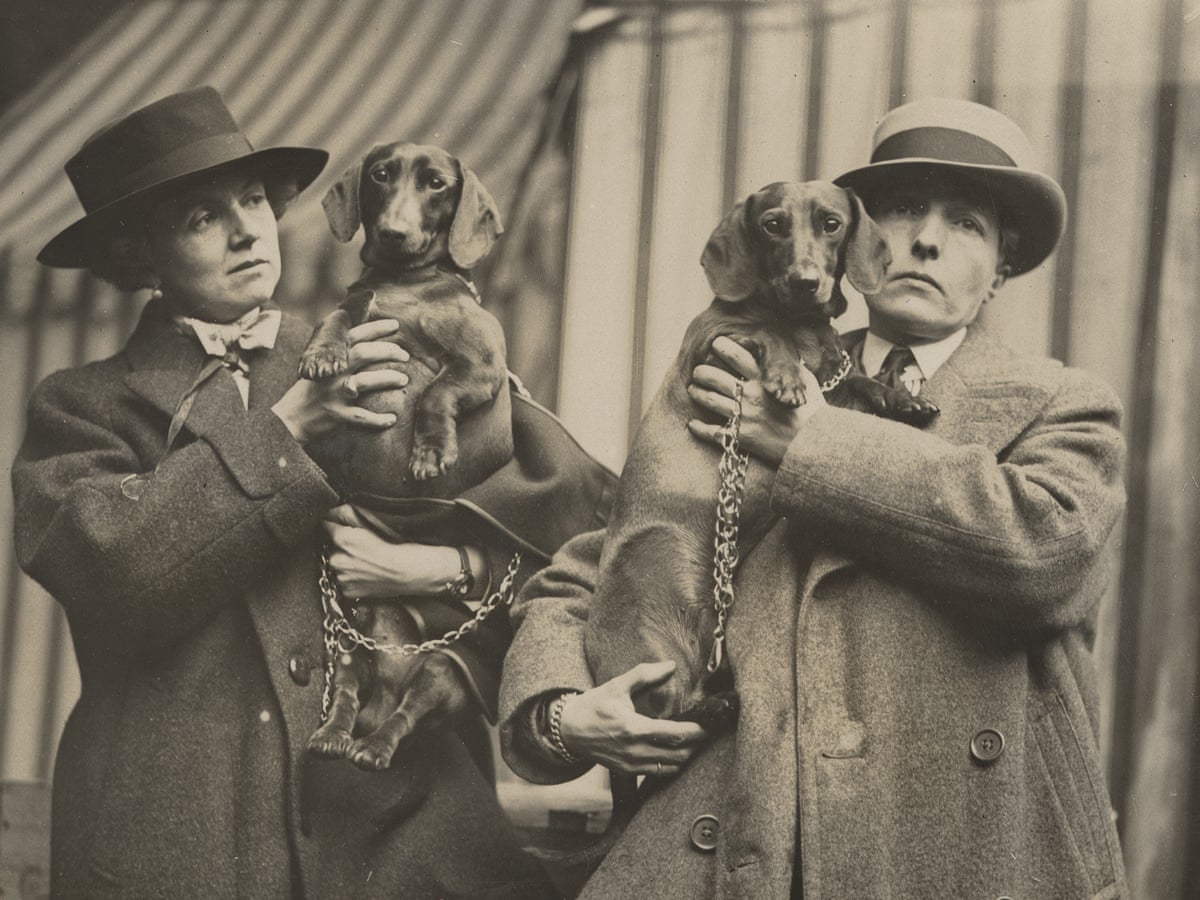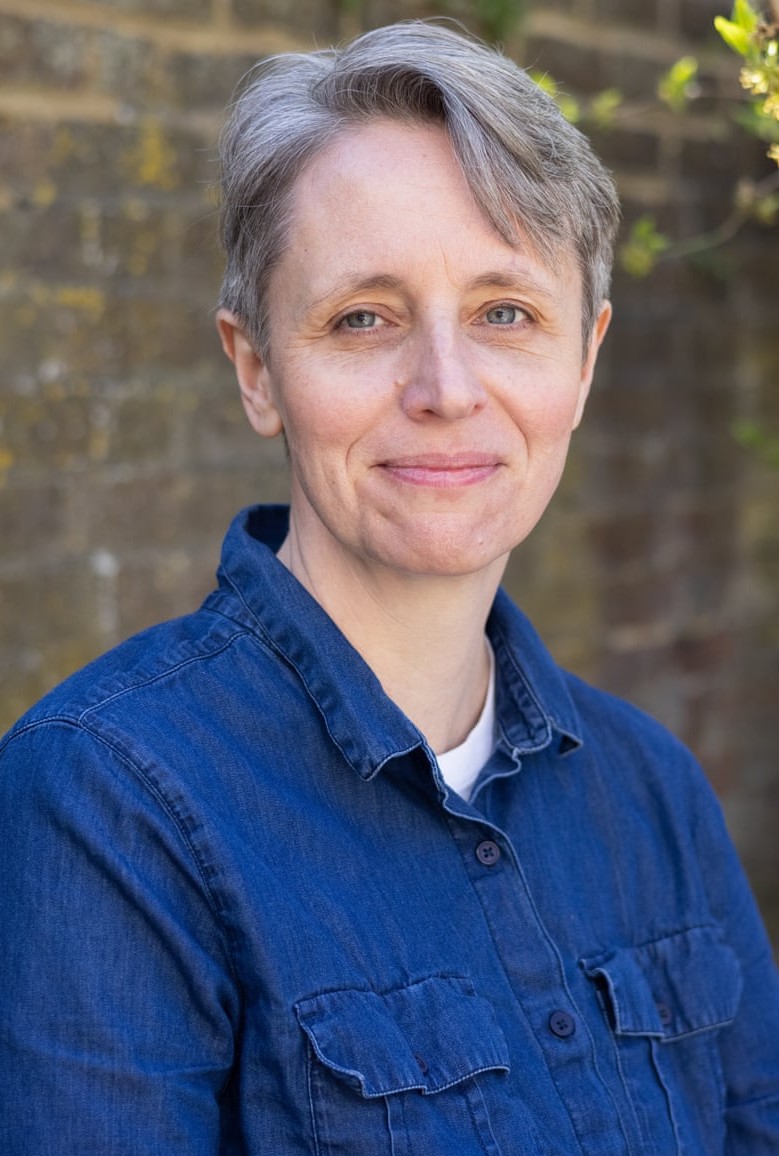
“Two souls, alas, dwell in my breast, / each seeks to rule without the other”
J.W Goethe, Faust, Part I, lines 1112-1113
It is easier to discuss politics and human behavior with biologists and geneticists than with social scientists. This applies in particular when debating the role of racial heredity and how it affects man’s character and his political behavior. The only problem, however, is that even a natural scientist, despite marshaling material and forensic evidence in his research, is also obliged to dance to the tune of dominant political ideas, i.e., abide by the canons of “political correctness,” or what the Germans call the compliance with the Zeitgeist— the spirit of the times. In other words, a geneticist or an evolutionary psychologist, along with his social science colleagues, must also subscribe to the dominant political beliefs and the dominant ideologies of his time. Moreover, he must carefully choose his words, given that, for instance, the noun ‘race’ has become today part of the so-called cancel culture.
Thus, if the dominant beliefs or ideologies are hostile to the research on different racial psychologies of different ethnic groups or, for instance, if the Zeitgeist is not conducive to the study of how genes influence the Bible-thumping of a Southern evangelist or to research on the “communist criminal chromosomes” of a former Bolshevik commissar, it is likely that a researcher will face adverse reactions from his peers and state authorities. Under pressure from the prevailing zeitgeist in the sixteenth century the astrologist Galileo, in order to save his neck, had to recant his discovery that gravity causes objects of different masses to fall with the same acceleration. This counterintuitive discovery is now universally taken for granted by all scientists. Likewise, under pressure from today’s dominant egalitarian beliefs it is risky for an evolutionary biologist to discuss excessively the correlation between man’s genetic fabric and his political affinities. The earth may no longer be flat, but an evolutionary psychologist who stresses the important role of DNA on our character, let alone a historian voicing doubts about the World Wat II victimhood accounts, runs the risk of being flatly denounced as a fascist monster or an extraterrestrial demon. Only antifascist do-gooders can allot themselves the rewarding victimhood role, “the victim having become the true hero of our times.”[i] Basically, since the end of World War II, modern social sciences, along with the media in the West, have operated as the Department of Demonology with regard to citizens of White European extraction, and particularly the German people, serving as occasional household demons.[ii]
It is always a welcoming sign to see rare scholars brave the ukases of self-censorship. By using a scholarly yet comprehensible language the behavioral geneticist Robert Plomin describes in his book how our very being is largely determined by our DNA makeup. In a chapter titled “Gene Hunting” he notes: “The first law of behavioural genetics is that all psychological traits show a significant and substantial genetic influence. Heritability means that inherited differences in DNA sequence cause differences between us.”[iii] Expressed differently, man’s character manifesting itself, for instance, in his infra-, para- or supra-political fantasies, daydreams, or mental disorders, is influenced by his ancestors’ DNA. Certainly, environmental factors and education play an important role – often a secondary one. Similar results on the correlation between heredity and political behavior have been confirmed by other researchers and discussed on numerous occasions (e.g., here), but also in other journals:
The existence of genetic influences on attitude formation raises the possibility that parent offspring resemblance is due to the genes rather than to their common environment.[iv]
Research on DNA by Anglo-American behavior geneticists and evolutionary psychologists, however much it offers a refreshing breakthrough, is not recent. Human genetic makeup, racial psychology, ancestral heritage, genetic endowment and their role in man’s sociopolitical behavior were discussed in great length by hundreds of German psychiatrists, biologists, chemists, lawyers and literati long ago. Of course, the term “behavioral genetics” was nonexistent a century ago in Germany; instead, German scholars and scientists in the Weimar Republic and later on in National-Socialist (NS) Germany used the less arcane word, such as “Rassenseelenkunde” (science or teaching of racial soul, or science of racial psychology), an expression common among German race researchers during the first half of the twentieth century. For obvious political reasons, the results obtained by German race researchers had to be memory-holed following the end of World War II, or simply discarded as pseudo-scientific drivel. Even if one assumes that it was drivel or trash, one wonders why this literature causes so much headache to the ruling class today, and why are the works of those German scholars not allowed to be studied by a wider audience?
Before examining some of those German findings on the correlation between racial heredity and character, one must always keep in mind that thousands of books and essays were banned or destroyed by the occupying Allied authorities [v] and that hundreds of thousands German academics, professors, teachers and cultural workers were subjected to the humiliating Allied questionnaires [vi] regarding their activities from 1933–45. One could fairly well surmise that the ongoing censorship in the U.S./E.U. media and academia regarding race research, the deluge of fake news and “wokism” in the 2020s, and the surge of Covid-inspired fear and warmongering are just logical consequences of post-World War II U.S./U.K./Soviet educational policies.
The Trust in Genes…
The works of some of those former German psychiatrists, medical doctors and geneticists need to be examined, not least as their approach differs significantly from their contemporary American and British colleagues. The German vocabulary on race and heredity is much more descriptive and less prone to conceptual ambiguities, and it avoids the use of foreign Latin-derived neologisms often used by English-speaking scientists. Aside from many overtly political publications on race and heredity published by German SS or NSDAP outlets during the NS epoch,[vii] dozens of academic journals and hundreds of racial scientists in Germany wrote on the subject of race, behavior, and heredity in an academic and very subdued manner. One encounters side-by-side with scholars close to the National Socialist movement apolitical contributors, such as the psychiatrist Ernest Kretschmer and the psychoanalyst Carl G. Jung who had a significant influence on behavioral genetics and racial profiling in post-World War II America and Europe. Rarely does one spot in their works derogatory or xenophobic statements about other races, including Jew baiting. The Hollywood cliché that Germany, during that time, functioned solely as a Lampshade state with German academics obliged to goose-step to a giant soap opera extravaganza must be dismissed.
Out of hundreds of scientists who participated in the research on racial psychology or “racial soul research” (Rassenseelenkunde) and racial characterology, both on the individual level and on the level of separate nations and races, one can single out for instance Walter Rauschenberger. He deals extensively with the hereditary makeup and genealogy of classical thinkers and artists, such as Arthur Schopenhauer, Friedrich Nietzsche, Richard Wagner and many others. “One comes to the conclusion that man is a unit, that his psychological traits are closely interrelated, and that a person’s character affects his talent, just as his talent affects his character.”[viii] Further he states that “someone’s character can only be understood when one gets to know his family tree.”[ix] Schopenhauer, who was of Dutch, German and partly Slavic ancestry had inherited his cultural pessimism from the combined character of his stern and gloomy father and his temperamental mother:
No modern philosopher possessed such an amazing erudition and such a comprehensive knowledge of languages as Schopenhauer did. He spoke German, English, French and Italian fluently and also had a good knowledge of Spanish. He also mastered the ancient languages and was at home in the literature of almost every people and time, which he largely read in the original texts.[x]
Schopenhauer had also inherited mental disorders that showed in his compulsive neuroses which made him feel paranoid from getting poisoned, or going to the barber, or living in a two-story building. “His constant fear of upcoming bad luck was the reason he resided on the ground floor for fear of catching fire.”[xi] His racial and genetic makeup shows traits of an organic and popular thinker, “exuding a down-to-earth attitude and the odor of the soil—key characteristics of Schopenhauer’s philosophy.” [xii]
Humans are just a blank slate or a rootless abstract human being, as has been maintained by Enlightenment thinkers and their modern liberal and communist offspring. In fact, humans have a long line of genetic heritage that can be modified by mutations and natural selection. German prominent psychology professor, later a member of the NS party, Gerhard Pfahler, focuses in his book on the role of education and political environment and how both can either improve or ruin someone’s inborn character strength or weakness respectively:
The first proposition regarding the theory of the hereditary character reads like this: Crucial psychological (soul) functions are inheritable in the strictest sense of the word. They are never the result of the influence of environment on the human being. They are the preconditions and therefore inheritable in the strictest sense of the word.[xiii]
According to Pfahler, freedom of will, a centerpiece of philosophical and theological disputes for centuries, won’t play much of a role even for a high-IQ person of strong will if he carries genes predisposing him to embezzlement, double dealing, political treason or some other felony. If man’s genetic/racial heritage predisposes him to crime, irrespective of his strong will to subdue it, he will act according to his latent criminogenic nature in a given political or historical situation.
Writing about this age-old dilemma of free will this is how Lothar Stengel von Rutkowski, a renowned anthropologist, medical doctor, poet and a high NS official sees it:
For, at a decisive moment a very specific situation will occur which, given the unique hereditary nature of the person concerned, excludes any further freedom on the part of that person who desires something specific. The dream of free will is over.[xiv]
The human drama regarding free will becomes unbearable when parents are obliged to observe their own camouflaged self in their child’s erratic or violent behavior. “How many parents abhor seeing in their child the return of the unpleasant sides of their own nature!”[xv]
One must dismiss the widespread Hollywood-hyped cliché trotted out by liberal scholars, many of them Jewish, claiming that the German racial researcher extolled only the “blond beast ” of the Nordic racial type at the expense of other European groups — such as Slavs. The popular term ‘Nordic’ was used often as a common denominator for all White subgroups. Nation or ethnicity is never a synonym for race. Most Germans, or for that matter most Whites, were and still are the combination of Dinaric, Nordic, Phalian and Mediterranean type with each subtype showing a predominant facial feature, i.e., phenotype. Prior to 1945 over 10 million Germans lived in the vast area of Eastern Europe and outside Germany’s border. To assume that there were no mixed marriages or no sexual encounters between those ethnic Germans and the majority of Hungarian, Romanian or Slavic populace is outright false. During World War II hundreds of thousands of Russian, Ukrainian, Croat, Slovak volunteers fought in the Wehrmacht uniform. More than half a million SS members, both in the German administration and in various military formations were non-German nationals.[xvi] The chief in charge of a Wehrmacht bloody reprisals against the Allied- and Soviet-inspired Warsaw uprising in the late summer of 1944 was general major Bronislav Vladislavovich Kaminski, a former Soviet citizen of Polish extraction, who had earlier turned into an ardent anticommunist. For his bloody actions against the Polish rioters, he was sentenced to death by his boss—Heinrich Himmler. The high-ranking Wehrmacht jurist and later SS general Lothar von Rendulic, who was in charge of fighting communist partisans in the rugged Balkans and snowy Finland, was a descendant of Croatian peasants. The list of mixed-marriage offspring—i.e., German intra-European “Mischlings” serving in the National-Socialist government goes on and on and on. Carl Schmitt, comes also to mind, a famous and famed German Catholic constitutional lawyer and important political theorist, much admired today by US and European right-wing and Alt-Right activists. Schmitt was married to a Serbian woman.
Spurious research by modern liberal and Marxist scholars dealing with the National-Socialist epoch asserts that the Germans were obsessed 24/7 with their pure Nordic blood only. In fact, the German word “Mischling”, having today a pejorative meaning and denoting a half-breed of mixed White and non-White origin, was a popular rhyme among many National Socialist functionaries who often referred to their own “mixed” inter-European pedigree comprised of various combinations of Phalian, Dinaric and Nordic subgroups. Some high-flown popular self-proclaimed racial researchers (Herman Gauch, Jörg Lanz von Liebenfels, etc.) who combined their race research with their cultic Nordic, Arian brotherhood rituals spiced up with xenophobic remarks, were not considered serious researchers. Not only were their works ignored by the German NS authorities, but they were sometimes ridiculed even by their own colleagues, “given that readers can get from those “racial savants” (Rassenkundler) a false sense of the essence of the science of race.”[xvii] One could draw a parallel with some modern cultic “Hollywood Nazis” in the U.S. whose racial rituals are adorned with bizarre iconography causing more harm than good to the advancement of White people. The role of spiritual and psychological traits in race research was widely discussed by many scientists in Weimar Germany and later on in NS Germany:
Certainly, the physical appearance of man (phenotype) is also the result of basic hereditary dispositions and occasionally those modeling ones which are due to slightly changing environmental forces. But the psyche is much more malleable and more flexible, much more pliable, volatile and softer than any somatic potential. The scope of the outcome, i.e., the results, are bigger, the variability is much wider.[xviii]
The German language makes a sharp distinction between spirit vs. soul (Geist vs. Seele), words often used synonymously in English, leading frequently, when translated, to serious conceptual confusions and incorrect conclusions. The leading racial anthropologist in NS Germany, professor Egon Freiherr von Eickstedt, explains in his books why it is politically dangerous for a politician to project his own perceptions, or wishful thinking on foreign nationals or races, especially when he is about to reach an important political decision.
That applies not only to the individual Self but also to the racial Self. Therefore, the interpretation of spiritual life of a foreigner is all the harder and methodologically more difficult to grasp the more remote the other race stands, that is, the more distant it stands apart from one’s own spiritual fabric. For if there is only one characteristic missing or almost completely missing from my Self, then the corresponding characteristic in the spiritual oscillations of that other person is also missing: “we do not understand each other.” Here lie the ethno-psychological causes of long and often bloody conflicts.[xix]
Most German racial psychologists of that epoch supported the holistic view of race where the “race of the body” and the “race of the soul” were studied together. The duality between the race of the body and the race of the soul was bridged by fusing natural science with social science. In fact, one can observe that the German racial scholars were among the first “sociobiologists” (although the term did not exist then), opposing the compartmentalization of science into distinct and separate fields. There has been a long German scholarly tradition of interdisciplinary research, even producing a derogatory German word ‘Fachidiot’—“the expert idiot”—for a one-track-mind scientist obsessed with his own field of study only. As a side note one must mention that following World War II, particularly in the USA, there has been a steady process of excessive compartmentalization of the educational curriculum, including the intelligence and diplomatic community, often leading to adverse and disastrous results.
Ontologically speaking the physiological and the psychological processes of life are strictly identical. Phenomenologically speaking, they are different, but they are strictly identical in their structural laws and in the rhythm of their development. … It can further be asserted that the body and the soul interpenetrate each other. All motor activity is always the expression of the soul (Seele) at the same time. The eye is the mirror of the soul. The soul appears in the body.[xx]
Race research in National-Socialist Germany was not a monolithic consensual endeavor where scientists were always forced to toe the party line. Modern media commentators, along with countless modern social scientists who critically narrate about race research in NS Germany, often surpass the apocalyptic accounts of the Book of Revelation with their ad hominem assessments. Even authors such as Edgar Allan Poe’s or HP Lovecraft’s surreal horror tales are no match for many modern, often lurid and one-sided prose lampooning German race researchers. Admittedly, the difference in approach of a multitude of German scholars dealing with the race issue, was quite significant. The example of the German philosopher of decadence, Oswald Spengler, who downplays the importance of biological race, is quite telling. Spengler, who is championed today as a major theoretician of radical conservatism by many White nationalists and traditionalists in Europe and the U.S., uses the term ‘race’ in an offhanded, poetic, and generic sense, shrugging off the biological approach of many German racial scientists:
But in speaking of race, it is not intended in the sense in which it is the fashion among anti-Semites in Europe and America to use it today: Darwinistically, materially. Race purity is a grotesque word in view of the fact that for centuries all stocks and species have been mixed. … Those who talk too much about race no longer have it in them. What is needed is not a pure race, but a strong one, which has a nation within it.[xxi]
Nobody in the position of authority in the German NS state harassed Spengler for his critical views about race research and his biting remarks about German anti-Semites. In fact, Adolf Hitler himself invited him to a private chat, lasting more than an hour, on July 25, 1933, which resulted in Spengler’s subsequent shipment of his republished book to him. Spengler’s downplaying of the biological attitude toward race research explains why his works, unlike works by hundreds of other European and American race researchers and theoreticians, who had become victims of purges after World War II, or modern “deplatforming” today, continue to exert interest among mainstream conservatives in the U.S. and Europe.
At the other side of racial research spectrum and more along the NS party line, stands Otmar von Verschuer, a prominent medical doctor, geneticist and later an official in the party, whose works on race were often quoted and discussed in a variety of NS publications. In a similar fashion, Verschuer, while admitting that race is destiny, dismisses the deterministic approach to the study of racial heredity while emphasizing the important role of environment, culture and history:
Therefore, culture and history must not be “explained” by race. The fact that we have recognized the importance of hereditary-biological preconditions for the people and the state is a lasting insight into racial biology. However, the spiritual conditions of culture and history must not be forgotten. This was explicitly confirmed by research on hereditary. It offers absolutely no support to materialism and to determinism—in any form whatsoever. [xxii]
Another racialist scholar, prominent psychology professor Bruno Petermann, deals extensively with the racial soul problem and how it affects man’s future social behavior and his political views. He also underlines the importance of political environment and how it can either positively or negatively alter human behavior:
Compared to the physical characteristics of a human being, we must first of all concede in principle that his mental, his spiritual world is obviously determined to a much greater extent by environment.
The social milieu into which a person was born obviously determines the fate of his upbringing which will affect him in the course of his life and shape his personality. [xxiii]
An influential NS official, medical doctor, psychiatrist, also the editor-in-chief of a journal of psychiatry, Matthias Heinrich Göring, analyzed the genetic fabric of individuals and how it influences the choice of their political and philosophical beliefs. Being a friend of the renowned psychologist Carl Gustav Jung, who was for a short time coeditor of the same journal, MH Goering gives some credit to Jewish psychoanalysts Sigmund Freund and Alfred Adler for having been among the first to examine the realm of the unconscious. But he maintained that, due to their alien racial makeup, they are not capable of understanding the “depth psychology” (Tiefenpsychologie) of their German subjects.
Unfortunately, no one before Freud had utilized in practice the knowledge of the unconscious. Its applicability is a contribution of F r e u d. His method has become common property of all psychotherapists. Nonetheless, much more important than the method itself is the worldview (Weltanschauung). We must ask ourselves the question: Where does the method end and where does the worldview begin? This question is not difficult to answer. The worldview begins as soon as one starts asking about the content of the unconscious. Therefore, we need to study the soul-life (Seelenleben) of our people in order to obtain a picture of its psyche. I am saying explicitly “our people,” i.e., the German people, because I am of the opinion that within the Aryan race each people has its own spiritual peculiarities. [xxiv]
The word ‘Gemeinschaft’, i.e., community — or what is called an ingroup today—was used by German race researchers of all intellectual approaches. Gemeinschaft was considered a mandatory conceptual and therapeutic framework for studying someone’s individual mental skills, character flaws, political dispositions, or nervous disorders, as well as their cure. Psychoanalyzing (as Freud or Adler did) an atomized, urbanized individual and his political beliefs or his mental troubles, while disregarding or ignoring his racial and national background and his family tree, yields opposite, often negative results:
[Alfred] Adler uses the concept of the community merely as a means. According to him it is not the community that is essential; it is the individual’s healing. For us, the primary and most important thing is the idea of the community, the sense of the community. Subsequently, out of this sense of the community comes spiritual healing.[xxv]
* * *
Racial Language and the Canceled Language: the Jewish Question
From the above, several conclusions can be drawn. Most modern academics and politicians, when critically writing or speaking about the National-Socialist experiment and race researchers of that time resort to the pejorative term “Nazi”. It must be pointed out that the expression “Nazi” was never used in official NS documents, nor in numerous academic publications sponsored by the NS regime. If one follows the logic of this semantic distortion then the term “Nazi” can find its distorted equal in its equally derogatory word “commie” when portraying Communism. However, not a single modern scholar in the US today—unless when quoting or putting the “commie” word in quotations marks—would ever use such a pejorative abbreviation. He wouldn’t look serious or publishable. As a result, as long as the derogatory term “Nazi” is being randomly tossed around in numerous scholarly or media debates, no solid progress can be made in objectively assessing the works of German race researchers in NS Germany. The chief of the NS propaganda office, Joseph Goebbels, did however write a short semi-satirical pamphlet with the title “Der Nazi-Sozi” —quotations marks added by him—in which two actors conduct an imaginary and heated discussion with the main character who is lambasting Jews, Marxism, and the bourgeoisie while extolling the virtues of “German Socialism.”[xxvi] It must be noted that the defamatory, abbreviated term “Nazi” had been launched by German communist agitators in the early 1920s during the Weimar Republic, later becoming, especially after World War II, an all-out, slogan demonized throughout the world and signifying absolute metaphysical evil.
Likewise, the German NS regime in its official self-description, along with thousands of its intellectual supporters, never used the term “ideology” for its own NS experiment: it reserved this term, i.e., Ideologie, only for its mortal enemy: communism. The official reference to the National-Socialist belief system was an old, lofty, romantic German term, Weltanschauung, a compound noun usually translated into the English as “worldview.” However, the German term Anschauung, with its numerous verbal derivatives, is far more nuanced than the English “view” or “outlook”. It has a far-reaching meaning in psychological, philosophical and aesthetic speculations, and of course, in providing a very distinct notion of the political. Being a language that freely allows the construct of countless compound nouns, it’s no wonder that the German language is thought to be best suited for “Dichter und Denker”—poets and thinkers.
The topic of racial hereditary traits and how they are reflected in the use or abuse of language was much discussed by German researchers whose background was in comparative linguistics and knowledge of European folk tales. One must single out here the name of Siegfried Kadner, a linguist and translator, associated with the NS propaganda offices, and a very popular compiler of German folk tales. His book on race and humor discusses the racial “body language” and the joke-making skills of different European racial subgroups. Through the study of someone’s gift for jokes, figures of speech and his or her sense of humor or lack of it, one can fairly well figure out a person’s racial and hereditary background, without even studying his outward physical traits. Kadner observes how individuals of the Dinaric subgroup can be recognized by their boastful and often coarse humor, while the Nordic group excels in pranks, also sporting self-irony, as seen in the German anecdotal medieval big-time prankster Till Eulenspiegel. A European of a predominantly Mediterranean physique is said to be inclined to self-aggrandizing speech and ritzy attire.[xxvii] A passing observer can still notice some of those diverse humorous inclinations of different phenotypes that differentiate individuals of White extraction in the USA and Europe.
Kadner describes the Jewish sense of humor as a form of “Jewish cynicism” which manifests itself in their lack of interracial empathy. He does acknowledge strong verbal skills of Jews, but also their inclination to use convoluted sentences of multifaceted meaning—or what we call today a gift for double-talk.
It is well known and must by no means be denied that the Jew brings out a lot of self-irony and that the most effective Jewish jokes come from Jews themselves. But the case, for instance, is quite different regarding the Nordic inclination to making fun of one’s own kind and of one’s own nature. There [i.e., among Nordics], the cool distance from one’s Self which is averse to any embellishment; over here [i.e., among Jews], the intimate pleasure in oneself and in one’s own kind and the endeavor to remove racially conditioned concerns into a harmless light of amusement.[xxviii]
He illustrates the Jewish joke-making talent for verbal escapades and their attitude of indifference toward other peoples and races by analyzing hateful anti-German verses of the famous nineteenth-century German-Jewish poet Heinrich Heine. In Kadner’s view even the guilt tripping language used by the German-Jewish psychoanalyst Sigmund Freud toward his patients, being full of syntactical twist and turns, shows Freud’s specific racial background:
Nobody, not even a researcher can leave the boundaries of his race and ethnicity. When referring to the depth psychology of his own mixed-race, Sigmund Freud is undoubtedly right.[xxix]
There are literally tons of books published since the end of World War II in different languages dealing with race scholarship in NS Germany. Many of them are well researched and contain impressive bibliographies, but virtually all of them start out with deductive analyses ending in preconceived criminalizing conclusions. The average reader, without even knowing it, is forced to accept demonological conclusion about the past German race researchers. If one accepts the assumption that those former Germans racial scholars—all of them across the board—were indeed pseudo-scientists or quacks, why then are they being resurrected over and over again and portrayed as the archetype of the Absolute Evil? Subconsciously, many contemporary authors of these antifascist and “anti-Nazi” scholarly accounts or tracts, let alone their readers who are fascinated with horror stories about the NS epoch, show their own implicit crypto-fascist nature—while never admitting it in public.
This remains true unless there were some dark secrets in the Allied liberal and antifascist post-World War II narrative which resorted to the language of “weapons of mass destruction” in order to legitimize, but also better hide the Allied own crimes. The fact that the Frankfurt School and its mainly Jewish scholars were so agile, right after the end of World War II, in doubling down on the antifascist narrative and keeping it alive today, is a quite informative fact in thinking about Jewish psychology. The panicky attitude toward the Fascist and NS intellectual heritage by numerous Jewish intellectuals reflects subconsciously their own concerns in dealing not just with a handful of German dimwits of mediocre knowledge, but with many of them being serious researchers. Otherwise, they would have shrugged off the whole topic of the NS epoch long ago.
After observing what was left of the bombed out, scorched and dismembered Germany and Europe in the mid-1945, it was predictable for the Western Allies to attempt to find a way to restore their clean consciences. This is the reason they launched, all along with Frankfurt school re-educators, massive propaganda on the “authoritarian personality” pointing to an alleged inborn authoritarian character trait of all European peoples. [xxx] Freda Utley, an American-English scholar witnessed firsthand the mindset of the new architects of the new liberal and communist world-improvers, shortly after the end of WWII:
United States military authorities on entering Germany and seeing the ghastly destruction wrought by our obliteration bombing were fearful that knowledge of it would cause a revulsion of opinion in America and might prevent the carrying out of Washington’s policy for Germany.[xxxi]
Predictably, the writings of those German racial psychologists had to be countered by the opposite political-psychological offensive in an effort to reset the entire Western society—not just in Germany, but in the entire Europe and the USA. This process, as of 2022, is still in progress. Its political, social, educational results can be observed on the daily basis.
[i] Alain de Benoist, Les Démons du bien (Paris: P.G de Roux), p.33.
[ii] T. Sunic, Titans are in Town, pref. by K. MacDonald (London: Arktos, 2017), p. 190-200.
[iii] Robert Plomin, Blueprint – How DNA Makes us Who We Are (MIT/Allen Lane, 2018), p. 117-129.
[iv] Emily A. Willoughby et al., “Parent Contributions to the Development of Political Attitudes in Adoptive and Biological Families”, APS (November 18, 2021).
https://journals.sagepub.com/doi/10.1177/09567976211021844?icid=int.sj-full-text.similar-articles.3
[v] Liste der auszusondernden Literatur (Berlin: Zentralverlag, 1946).
[vi] Cf. Novel by Ernst von Salomon, Der Fragebogen (Hamburg: Rowholt, 1951). In English: Fragebogen; The questionnaire (NY: Doubleday, 1955).
[vii] „Preservation and increase of the Nordic blood share is therefore the most important part of the breeding goal of the German people. This does not mean the devaluation of other Europoid races that have contributed to the building of our nation.“, Rassenpolitik (Berlin: Hauptamt (Main Office) Reichsfuehrer SS – SS, 1942), p. 64.
[viii] Walter Rauschenberger, Erb- und Rassenpsychologie schöpferischer Persönlichkeiten (Jena: Verlag von Gustav Fischer, 1942), p. 3.
[ix] Ibid, p. 16.
[x] Ibid., p. 187.
[xi] Ibid. p. 218.
[xii] Ibid. p. 210.
[xiii] Gerhard Pfahler, Warum Erziehung trotz Vererbung? (Leipzig, Verlag BG Teubner, 1940), p. 35
[xiv] Lothar Stengel von Rutkowski, Was ist ein Volk? (Erfurt: Verlag Kurt Stenger, 1940), p. 157.
[xv] Gerhard Pfahler, Warum Erziehung trotz Vererbung? (Leipzig: Verlag BG Teubner, 1940), p.55.
[xvi] Cf. Franz W. Seidler: Avantgarde für Europa: Ausländische Freiwillige in Wehrmacht und Waffen-SS (Selent: Verlag Pour le Merite, 2004).
[xvii] Gisela Meyer-Heydenhagen, ” Arisches Weistum?“, in Volk un Rasse, 11/3 (Leipzig: 1936), p.462.
[xviii] Egon Freiherr von Eickstedt, Grundlagen der Rassenpsychologie (Stuttgart: Ferdinand Enke Verlag, 1936), p. 33.
[xix] Ibid., p. p. 38-39.
[xx] Paul Bruchhagen, Allgemeine Rassenseelenlehre (Leipzig: Verlag Quelle und Meyer, 1940), p.14.
[xxi] Oswald Spengler, The Hour of Decision, translated by Charles F. Atkinson (London: London George Allen and Unwin, 1934).p. 219.
[xxii] Otmar von Verschuer, Erbanlage als Schicksal und Aufgabe (Berlin: Walter de Gruyter & Co, 1944), p. 24
[xxiii] Bruno Petermann, Das Problem der Rassenseele (Leipzig: Verlag, Johann A. Barth, 1935), p. 122-123.
[xxiv] Matthias Heinrich Göring, „ Weltanschauung und Psychotherapie “, Zentralblatt für Psychotherapie, IX/5, (Leipzig, 1936), p. 292.
[xxv] Ibid., p. 295.
[xxvi] Joseph Goebbels, „Der Nazi-Sozi“ (Elberfeld: Verlag der Nationalsozialistischen Briefe, 1927).
[xxvii] Siegried Kadner, Rasse und Humor (München und Berin: JF Lehmans Verlag, 1939); Reprinted, Verlag der Schelm, 2018), p. 60.
[xxviii] Ibid, p. 186.
[xxix] Ibid, p. 190.
[xxx] T. Sunic, Homo americanus; Child of the Postmodern Age, pref. by K. MacDonald, postface A.de Benoist (London; Arktos, 2018), „Brainwashing the Germans“, pp.74-86.
[xxxi] Freda Utley, The High Cost of Vengeance (Chicago: Henry Regnery, 1947), p. 183.











